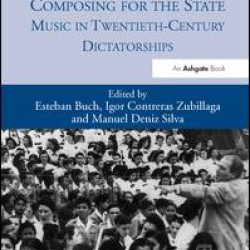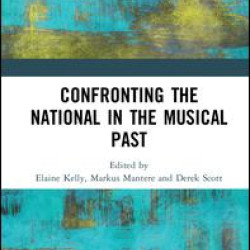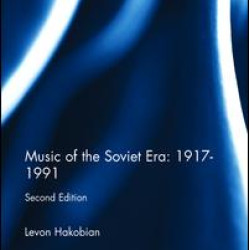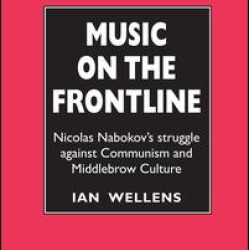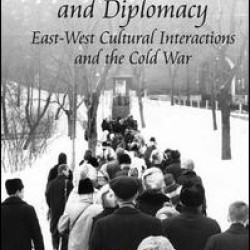Music & Politics
Brand: Taylor & Francis
Model: Stock
This book presents ten studies focusing on music inspired and promoted by regimes such as Nazi Germany, Fascist Italy, France under Vichy, the USSR and its satellites, Franco's Spain, Salazar's Portugal, Maoist China, and Latin-American dictatorships. By discussing the musical works themselves, whet..
₹5,654.14 ₹7,067.68
Brand: Taylor & Francis
Model: Stock
This significant volume moves music-historical research in the direction of deconstructing the national grand narratives in music history, of challenging the national paradigm in methodology, and thinking anew about cultural traffic, cultural transfer and cosmopolitanism in the musical past. The cha..
₹8,445.60 ₹10,557.00
Brand: Taylor & Francis
Model: Stock
As the first English-language monograph to explore the connections of Spanish exiled composers with their homeland throughout 1939-1975 from the perspectives of historiography, music criticism, performance and correspondence, Eva Moreda Rodriguez's vivid reconception of the role of place and nation ..
₹8,812.80 ₹11,016.00
Brand: Taylor & Francis
Model: Stock
This comprehensive survey of music and musical life of the entire Soviet era, from 1917 to 1991, takes into account the extensive body of scholarly literature in Russian and other major European languages. In this considerably updated and revised edition of his 1998 publication, Hakobian traces the ..
₹11,016.00 ₹13,770.00
Brand: Taylor & Francis
Model: Stock
In his position as Secretary General of the CIA-financed Congress for Cultural Freedom (CCF), Nicholas Nabokov gave music a high profile in the work of this Cold War organisation, producing four international musical festivals under its auspices. This book reveals that Nabokov's musical involvement ..
₹3,083.74 ₹3,854.68
Brand: Taylor & Francis
Model: Stock
In his position as Secretary General of the CIA-financed Congress for Cultural Freedom (CCF), Nicholas Nabokov gave music a high profile in the work of this Cold War organisation, producing four international musical festivals under its auspices. This book reveals that Nabokov's musical involvement ..
₹7,711.20 ₹9,639.00
Brand: Taylor & Francis
Model: Stock
This edited volume shows how a vibrant field of cultural exchange between East and West was taking place during the Cold War, which contrasts with the orthodox understanding of two divided and antithetical blocs. The series of case studies on cultural exchanges, focusing on the decades following the..
₹8,812.80 ₹11,016.00
Brand: Taylor & Francis
Model: Stock
Essays by scholars from around the world explore the means by which music's long-acknowledged potential to persuade, seduce, indoctrinate, rouse, incite, or even silence listeners has been used to advance agendas of power and protest...
₹2,789.98 ₹3,487.48
Brand: Taylor & Francis
Model: Stock
Each of this book's discrete but interrelated chapters is devoted to a different geographic and discursive site, examining French representations of musical encounters in North America, the Middle East, as well as in contested areas within the borders of metropolitan France. Rosenberg highlights int..
₹8,812.80 ₹11,016.00
Showing 1 to 9 of 9 (1 Pages)


